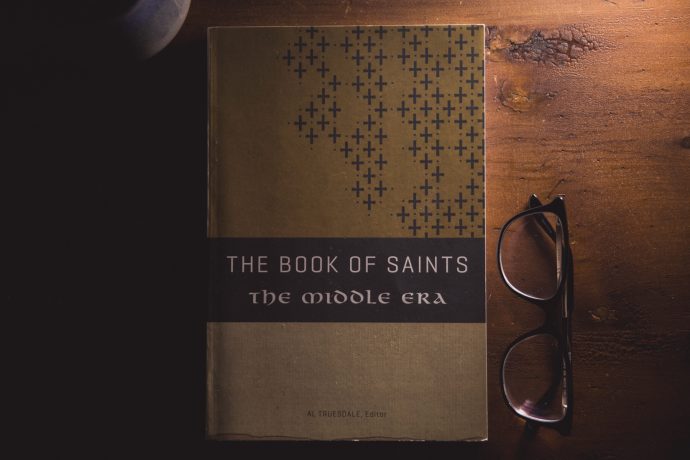I edit books that are mostly for pastors, religion students, and lay leaders. One of the most enjoyable projects I’ve ever worked on is the Book of Saints series, by Al Truesdale. Each volume is, on one hand, a formational and devotional treasure with counsel and insight for laypeople and clergy alike, while on the other hand it contains a scholar’s dream—collections of historical writings and biographical essays. Wrapped within the pages are prayerful devotions, Scripture references, and hymns, as well as readings from some of the most profound thinkers from the past two millennia of Christianity.
Ranging from the time of the earliest post-New Testament writings to modern times, this series exposes the reader to the words of such saints and sages as Ignatius of Antioch, Athanasius, Augustine, Francis of Assisi, Catherine of Siena, Blaise Pascal, Jonathan Edwards, John Wesley, Hannah Whitall Smith, Thérèse of Lisieux, and Dietrich Bonhoeffer. Readings from these individuals and from the many others included in these volumes made working on this series more than inspiring for me; it was life changing. Imagine basking in the glow of the ideas, sermons, prayers, and teachings of some of the greatest Christian theologians, pastors, and spiritual mentors of Christianity. It’s an incomparable privilege, and one I want to share.
Each saint is introduced with a compelling biography. Readings from the writings of the saint then follow, with every reading accompanied by a prayer or hymn and a list of relevant scriptures for meditation and study. Here is just a sample of the thoughtful words found in this collection:
Why should we love God, and in what measure? The reason for loving God is God himself. And the extent to which God should be loved is immeasurable.
Could any greater claim be made on our love than that Christ freely gave himself for unworthy sinners? What more regal gift could God have offered?
Ought not God to be loved in return when we consider who loved, whom he loved, and how much he loved? For who is he that loved us? The One Christians confess, “You are my God.” Is this not the ultimate demonstration of that love that refuses to seek its own interests?
For whom was such inexpressible love demonstrated? To God’s enemies, for “when we were enemies, we were reconciled to God by the death of his Son.” So it was God Almighty who loved us freely and loved us while we were still his enemies.
And how great is God’s love? He “so loved the world that he gave his only begotten Son.” And what about the measure of God’s love? “He did not spare his own Son but delivered him up for us all.” This is the claim that the holy, supreme, and omnipotent God has on us who were defiled. God has wondrously offered his love so that we need no longer remain in our sins.
Bernard of Clairvaux, On Loving God, chap. 1
(The Book of Saints: The Middle Era [Kansas City: Beacon Hill Press of Kansas City], 157)
The first three volumes of these books (The Early Era, The Middle Era, and The Reforming Era) are available now. The fourth volume (The Early Modern Era) and the fifth volume (The Modern Era) will be available in the upcoming months. I hope you will join me and embrace the privilege I have had by examining the first volume. It begins where the New Testament ends, continuing the story of God’s redemptive work through Christ. For more information, please visit the NPH website.





0 Comments